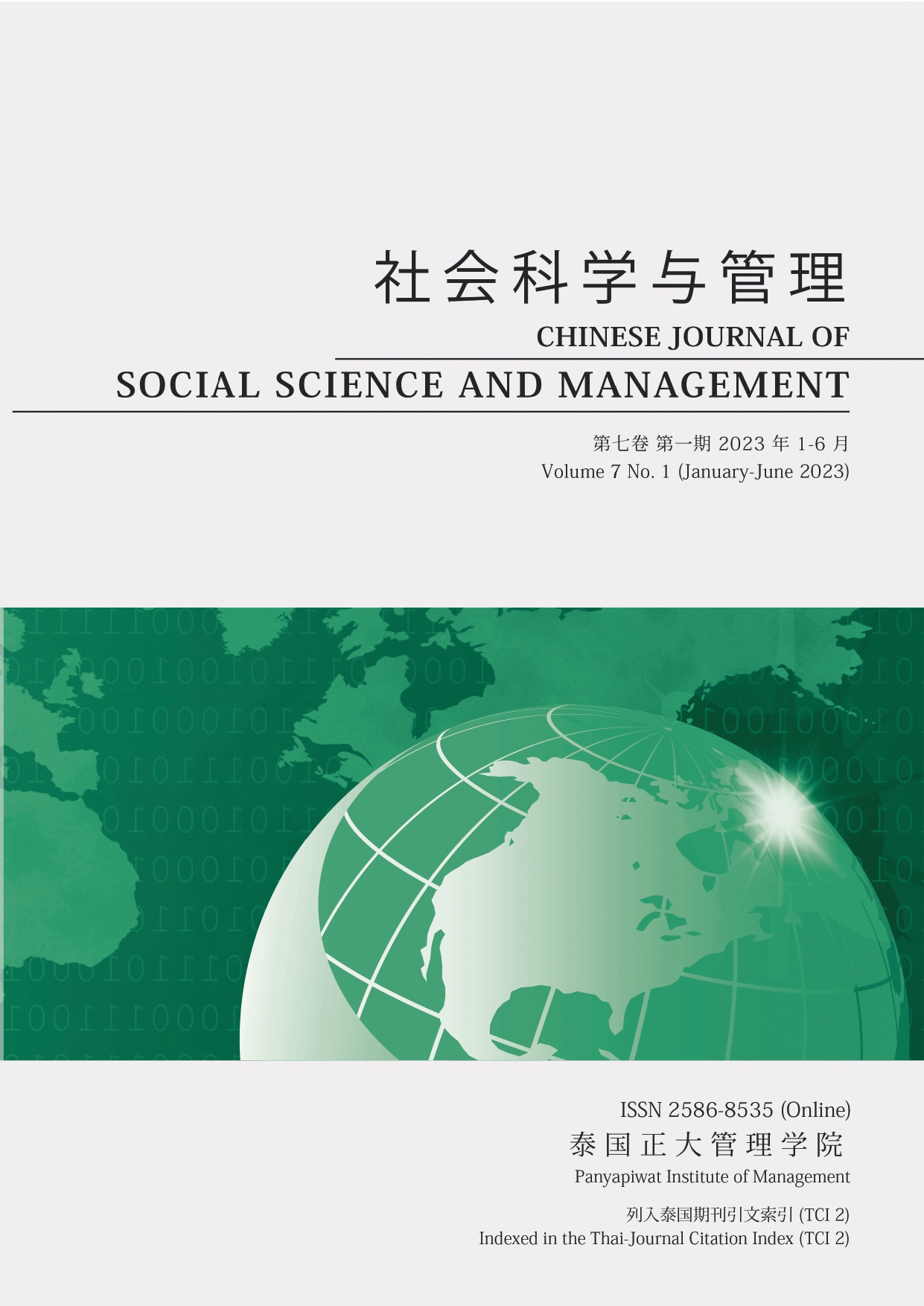THE IMPACT OF TEACHERS’ ENCOURAGING ONLINE COMMENTS ON LEARNING MOTIVATION IN THE TIME OF COVID-19 PANDEMIC: EVIDENCES FROM UNIVERSITIES IN SICHUAN PROVINCE, CHINA
Main Article Content
Abstract
Encouraging evaluation by teachers can help improve students’ motivation for learning. In mobile teaching, teachers should provide learners with encouraging scientifc and reasonable evaluations based on the characteristics of the curriculum, learners’ differences and specifc situations to stimulate their learning motivation. Based on the SOR (stimulus-body-response) model, this paper explored the influences and mechanisms of encouragement behavior in teachers’ online comments on learners’ motivation in mobile learning. By adopting random sampling and snowball sampling, a questionnaire survey of college students was carried out in southwest China through Chaoxing Erya. The results showed that encouraging comments by teachers had a signifcant moderating effect on the relationship between the number of online comments and pleasant emotions, between the number of online comments and arousal emotions, and between mobile phone dependence and pleasant emotions, which ultimately strengthened learning motivation.
Article Details

This work is licensed under a Creative Commons Attribution-NonCommercial-NoDerivatives 4.0 International License.
Chinese Journal of Social Science and Management Editorial Division
The Office of Research and Development, Panyapiwat Institute of Management
85/1 Moo 2, Chaengwattana Rd., Bang Talat, Pakkred, Nonthaburi 11120, Thailand
Tel. 02 855 01048 E-mail: cjssm@pim.ac.th
References
Bai, S., Ren, N., & Ma, N. (2020). Effectiveness of online presence in a blended higher learning environment in the Pacifc. Studies in Higher Education, 45(8), 1547-1565. [in Chinese]
Chen, X., & Chang, B. (2020). The impact of learning motivation on continuous use in the mobile game-Focusing on Chinese mobile game “King of Glory”. International Journal of Contents, 16(2), 78-91. [in Chinese]
Emily, N. K. L. (2020). Ensuring quality of a large-scale online assessment for nursing students in the 21st century: A case study. International Journal of Adult Education and Technology, 11(3), 49-65.
Feras, A. O., Bruce, S., & May, A. T. (2020). Identifying major tasks and minor tasks within online reviews. Future Generation Computer Systems, 110(1), 413-421.
Gamage, S. H. P. W., Ayres, J. R., Behrend, M. B., & Smith, E. J. (2019). Optimizing moodle quizzes for online assessments. International Journal of STEM Education, 6(1), 1-14.
Gantz, J., & Reinsel, D. (2019). Extracting value from chaos. IDC Review, 4, 12-25. Gill, S. M., Marc, V. A. T. M., Peter, B. J., Harold, E., Maria, K., & Owen, C. (2020). Online assessment of applied anatomy knowledge: The effect of images on medical students’ performance. Anatomical Sciences Education, 145, 73-97.
He, A., Bao, C., & Hui, Q. (2020). The relationship between emotional intelligence and mental health of college students: The mediating role of social support and the moderating role of mobile phone dependence. Psychological Development and Education, 36(4), 494-501. [in Chinese]
Huang, C. (2020). Study on English learning motivation and learning strategies. Lifelong Education, 9(3), 84-105. [in Chinese]
Karlsen, A. (1994). Burrhus Frederic skinner’s radical analyses of behavior and the philosophy series in the Tidsskrift. Tidsskrift for Den Norske Laegeforening, 114(2), 1-20.
Liu, L. F., & Zhang, S. Y. (2020). The best utility combination of online evaluation data: Taking amazon commodity hairdryer as an example. Journal of Global Economy, Business and Finance, 2(4), 11-26. [in Chinese]
Liu, H., & Wang, Y. L. (2019). Exploration and practice of students’ online evaluation. Frontiers in Educational Research, 2(10), 129-151. [in Chinese]
Liu, Z. H. (2020). Study on the influence of migrant children’s academic emotion on learning engagement. Chinese Journal of Special Education, 2(1), 69-75. [in Chinese]
Luo, Q., & Liu, C. (2020). Recent development of research on foreign language learning motivation. Sino-US English Teaching, 17(1), 161-176. [in Chinese]
Miran, Z., Igor, B., & Dragutin, K. (2015). Using online assessments to stimulate learning strategies and achievement of learning goals. Computers & Education, 91, 32-45.
Moftt, R. L., Padgett, C., & Grieve, R. (2020). Accessibility and emotionality of online assessment feedback: Using emoticons to enhance student perceptions of marker competence and warmth. Computers & Education, 143(1), 249-268.
Nam, C. M., Kim, C. W., Hong, K. S., Cho, C., & Hong, J. H. (2020). A study on the learner characteristics in virtual reality by a school level curriculum. Journal of the Korean Association of Information Education, 24(1), 71-78. [in Korean]
Okada, A., Whitelock, D., Holmes, W., & Edwards, C. (2019). E-authentication for online assessment: A mixed-method study. British Journal of Educational Technology, 50(2), 861-875.
Raine, M. (2019). Eventful learning: Learner emotions. Emotions: History, Culture, Society, 17(2), 161-176.
Sathish, K. R. (2013). Online reviews: Do consumers trust them? Sumedha Journal of Management, 2(4), 133-143.
Tapingkae, P., Panjaburee, P., Hwang, G., & Srisawasdi, N. (2020). Effects of a formative assessment-based contextual gaming approach on students’ digital citizenship behaviors, learning motivations, and perceptions. Computers & Education, 91(1), 113-128.
Tyler, R. W. (1994). Basic principles of curriculum and instruction. People’s Education Press. [in Chinese]
Truzoli, R., Viganò, C., Galmozzi, P. G., & Reed, P. (2020). Problematic internet use and study motivation in higher education. Journal of Computer Assisted Learning, 36(4), 480-486.
Wang, H. C. (2020). Research on real-time reliability evaluation of CPS system based on machine learning. Computer Communications, 157(1), 336-342. [in Chinese]
Wang, W., Xu, H., Wang, B. M., & Zhu, E. (2019). Learning motivation of frst-year students of a technical university. Journal of Korean Academy of Nursing, 69, 78-106. [in Korean]
Yang, W., Ji, Q., Liu, Y., & Zhang, W. (2020). A scientifc study on the influencing factors and arousal mechanism of academic emotion under the construction of crowdsourcing knowledge: Research on the structural reform of classroom teaching for deep learning. Modern Distance Education, 4, 1-17. [in Chinese]
Zhai, X., Wang, M., & Ghani, U. (2020). The SOR (Stimulus-Organism-Response) paradigm in online learning: An empirical study of students’ knowledge hiding perceptions. Interactive Learning Environments, 28(5), 586-601. [in Chinese]


